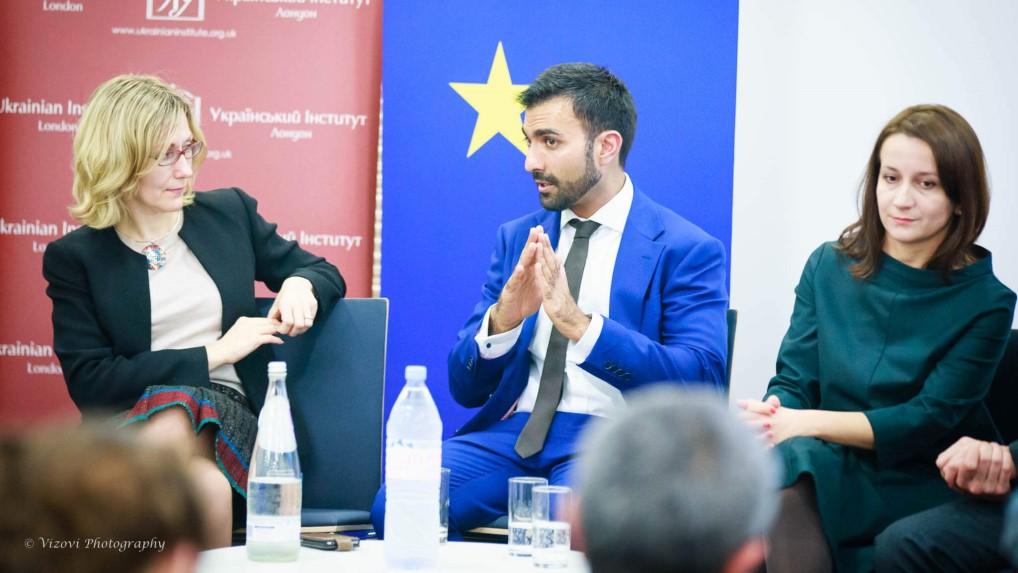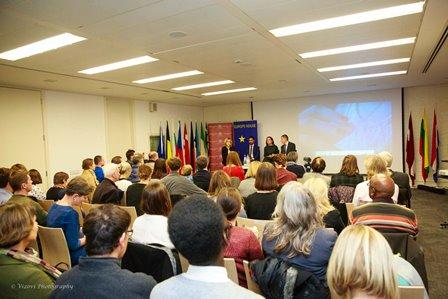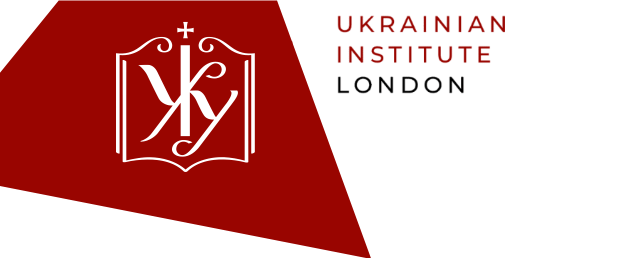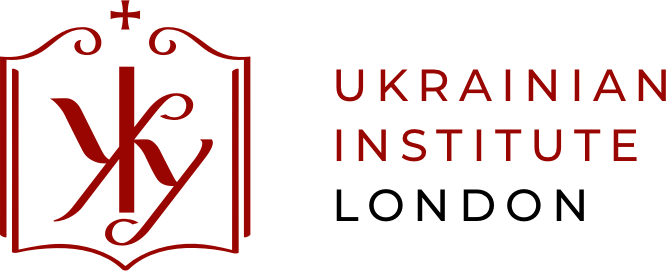Playwright Natalia Vorozhbyt and international relations lecturer Samir Puri discuss the war in eastern Ukraine and the powerful human stories surrounding it.

AUTHOR
Ursula Woolley, Ukrainian Institute London.
Natalia Vorozhbyt’s earlier plays impressed veteran Guardian theatre critic Michael Billington when they were staged by the RSC and were lapped up by audiences at the Traverse Theatre in Edinburgh. She is one of the best known playwrights currently working in Ukraine and her work about the ‘Maidan’, the Revolution of Dignity which led to the collapse of the government of the pro-Kremlin President Viktor Yanukovych, was staged at the Royal Court in May 2014.
But when Uilleam Blacker asked her at Tuesday’s Ukrainian Institute London film screening at Europe House whether she would return to writing more about historical themes, like the Holodomor (Stalin’s man-made Ukrainian famine of the 1930s) which she took as her subject in The Grain Store, she was clear: ‘There is too much to do in the present for me to write any more about history.’
We were treated to a special early preview of a film she made for the Theatre of the Displaced. The film was introduced by Natalia herself, with Samir Puri, a Lecturer in International Relations from King’s College London, who had spent a year in eastern Ukraine as a monitor for the OSCE, and the event was chaired by Marina Pesenti, Director of the Ukrainian Institute London.
Collectively the young people tell a powerful story about the damage caused by war, with a consistent emotional delicacy and intelligence.
My Mykolaivka is a montage of monologues created by young people from a secondary school bombed during the war in eastern Ukraine. Collectively they tell a powerful story about the damage caused by war, with a consistent emotional delicacy and intelligence. The young people speak of friends and boyfriends lost or killed, families split and reunited; the discovery of a new, fierce protectiveness towards younger siblings; a new anxiety about the vulnerability of their parents; and a new sense simultaneously of their own individual agency in circumstances of threat and flux. One of them seeks refuge in girlfriends on summer camp, some seek refuge in family responsibility; others in creating their own shadow puppets to channel – brilliantly – their otherwise barely manageable reactions to war and loss. Their visible search on screen to find the best way to tell their individual stories accurately is very powerful. How entirely relatable and likeable – and eye-opening – they would be for their contemporaries in Britain who learn only briefly about the Holodomor (GCSE History) and the current conflict (GCSE Political Geography).
The young people (about 15 years old at the time) started working with Natalia and her collaborator, the filmmaker Georg Genoux, by adlibbing their own stories and gradually honed them as they rehearsed, polishing their performances and processing their experiences at the same time. As Natalia said, ‘I knew we had made progress, creatively and psychologically, when they had moved from being brought to tears inadvertently, to having to actually recreate their emotions at last for the camera.’ And this sense of an emotional journey achieved by a group of individuals also gives the film a clear sense of structure and direction.

Natalia and Georg first visited the school in December two years ago. She took him, she said, because she had noticed how – unwittingly – he had been influenced by the ubiquitous Russian government narrative. The relationship with the people in Mykolaivka was not an instant success. It took months to build trust: the team from the theatre got involved with the practical work of physically rebuilding the school and – at one point two years ago – helping to organise a Christmas (St Nicholas) party. After six months of visits, the young people performed their work: first on home ground at the school in Mykolaivka, then in Kyiv, in Lviv, and on to Germany.
Photo: the audience at Europe House listen to the talk given by Natalia Vorozhbyt and Samir Puri following the Ukrainian Institute London film screening.
There are currently more than 1.7m people displaced in Ukraine because of the war in the east. The Theatre of the Displaced was founded in March 2015 by Natalia Vorozhbyt, Georg Genoux, the psychotherapist Oleksiy Karachinsky, the critic Chrystyna Khomenko and the film director Liza Kostyrkina. They are working on more projects with people from all over Ukraine on subjects including loss of trust through armed conflict but also other issues like family breakdown where theatre, and involvement in theatre, can create strong channels of communication and powerful voices.


